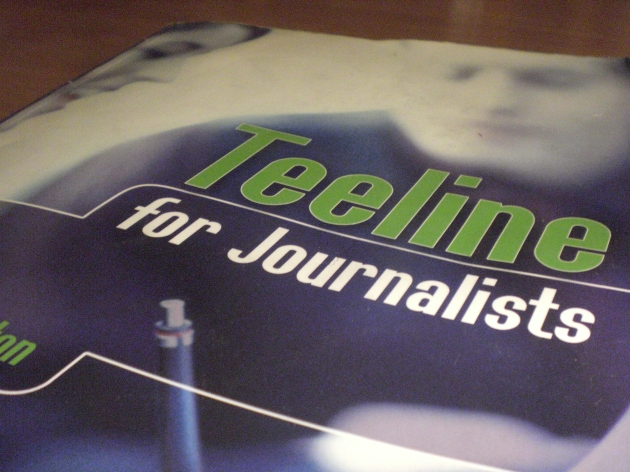You will want to learn shorthand after reading this post
December 2, 2010 10 Comments
There aren’t many topics within journalism that divide opinion like shorthand. Some think it’s valuable, others a waste of time. UK journo degrees place a lot of emphasis on it; those in the US don’t really teach it at all.
We could debate till the cows come home about whether or not it’s a useful skill in the context of 21st century journalism. Yes, journalism on a wider scale does not rely on it every day but covering courts and councils is still important locally. Both sides have very strong arguments.
What is perhaps more pertinent is whether we should be spending as much time on learning shorthand as journalism courses currently demand? At City, we spend six hours a week in the class (and countless others practising outlines and speed tests) whilst short courses like the News Associates NCTJ course at Wimbledon spend between 3-4 hours a day on it. Even if shorthand is worthwhile skill, is it so necessary that we spend half of our working hours poring over a textbook, trying to learn little squiggles?… Again debatable.
What is beyond debate though is the following two stories I was told recently, which go some way to underline the importance of shorthand.
Firstly, you may remember the Daily Telegraph recently had to pay out libel damages to Christiano Ronaldo. For those that don’t, the newspaper claimed that the football star had suggested he put an injured ankle at risk by ‘living it up’ at a Hollywood nightclub while a Manchester United player, something he obviously denies.
When the case went to court, guess what, the journalist’s shorthand notes were called for as evidence (a journalist is required by law to keep their notes for three years and are encouraged to keep them for longer – you never know when someone will challenge your quotes).
The court sent the shorthand notes for close inspection and, after a shorthand tutor at City tried to decipher them without much success, it was deemed that the journalist’s poorly formed shorthand outlines were not substantial enough evidence to justify the story. And that was partly how the Real Madrid player was able to secure an apology and substantial damages from the Telegraph, all because a journalist’s shorthand was not good enough.
Not only that but during a recent interview exercise with politician Meg Hillier, the MP for Hackney South and Shoreditch admitted that she was sceptical of journalists who asked her questions too quickly as it led her to question how accurately they were being noted down, even in shorthand.
Being a former student on the Newspaper MA at City, Hillier knows all about the battle to reach 100wpm and it was interesting to hear how she, as someone regularly interviewed by journalists, was conscious of shorthand speed when giving answers. Hillier even suggested that, in a situation where she thought questions were being asked too quickly to be taken down properly in shorthand, she often held back for fear of being misquoted. So, shoddy shorthand can make your interviewee clam up and prevent you getting the story.
Effectively a journalist’s nightmare.
Somebody on a BBC Today article I read likened shorthand to golf and I couldn’t agree more: it can be very frustrating, some people seem to have a natural knack for it and it requires regular practice if you want to be good at it.
But these two practical examples of how poor shorthand can affect your whole journalism career should make you take shorthand seriously from now on.




Isn’t the Ronaldo example really a case of bad journalism rather than a problem with shorthand? The journalist who wrote the article should have rewritten his/her’s shorthand, used a voice recorder and checked them both before making the claims he/she made.
I think shorthand has become an important skill to progress further within the industry but is no longer an essential skill to operate as a journalist. I have three friends writing for national newspapers who do not have shorthand.
Also I cannot think of a situation where having shorthand (and not a voice recorder) would be more beneficial, other than when you have forgotten the voice recorder. Anyone got any good examples?
Hey Ned, I have often agreed that I don’t think it is a make or break skill anymore – with so much digital recording available. But as I understand it, only shorthand notes are admissible in court, rather than a dictaphone recording for instance. I think the court’s approach is probably out of date (as well as not allowing electronic devices in courtrooms for recording etc..) because times have moved on a lot in terms of the options available to journalists.
Also – I know there are times that I would have loved to have shorthand when making notes of telephone conversations, where I have often had to ask people to slow down or repeat themselves. So perhaps not an ‘essential’ skill, but certainly a useful one.
Good example with courtrooms Nick – that does make shorhand essential.
Even on the telephone it is possible to get a microphone/headphone earpiece to record your conversation – though I’ve been searching around for these on the internet and I am yet to find them!
Pingback: Tweets that mention You will want to learn shorthand after reading this post « Wannabe Hacks -- Topsy.com
Shorthand is a great tool – if you’re caught without your dictaphone at a fab party or just bumping into someone high-profile, you can jot down accurate quotes. It’s also a great way to stimulate your mind, as it’s like learning to break a code (great for a su doku-phobe like me.)
At Cardiff we do 10 hours a week of practice and tests – 2 hours every weekday morning, and although we all moan, I have to say it does kick-start my brain for the day.
One tiny pedantic note – ‘pouring over a textbook’ ? Maybe City should spend a few minutes extra on basic accuracy and proofreading 😉
Cheers Lucy – Fixed!
I really wish I could get on a shorthand course; it’s a vital tool and the 60wpm I got up to at uni doesn’t quite hack it. I always worry when I record on a dictaphone and don’t make any notes at all as my dictaphone doesn’t have enough space to record every single interview I do. If a court asked me for a recording from 2 years back I would go into hiding.
Pingback: Tweets that mention You will want to learn shorthand after reading this post « Wannabe Hacks -- Topsy.com
It’s interesting, because I don’t think shorthand is more important than any other skill. But it is another string to your bow and that’s they key – no, it might not be what you’d choose to do (it can be painful at time, believe me) but realistically what else are you going to be spending that hour a day on? Some sort of Facebook/TV orientated procrastination probably – in which case shorthand is well worth the effort.
That’s not to say I don’t realise how hard it is to learn it if you’re not obliged to = shorthand is hard and requires real commitment; if you don’t have to do it (like the Magazine and Investigative courses at City) it’s easy to opt out. But when you have to reach 100wpm to pass, well, you have no choice
Even if you don’t use shorthand on a day-to-day basis in your work – you probably will not have got the job without it in the first place.
It is like a key to a locked door. Editors on local papers advertising positions generally state they will only consider applicants who have completed the NCTJ’s pre-entry certificate, which includes shorthand at 100wpm.
This is the rule. Of course there are exceptions and I know there will be good journalists sans qualification. But do you want to take the risk? Chances are your CV will be put straight in the (recycling) bin.
Dictaphones have their time and place (not in a court room). Have you ever had to transcribe an interview which you have recorded? It takes forever. Shorthand is far quicker.
It is a grind, a slog, but well worth it. I should know – I teach students shorthand and I see a great range of talent, or lack thereof. Many struggle but on the whole shorthand is meritocratic – if you put the work in you will see the results.